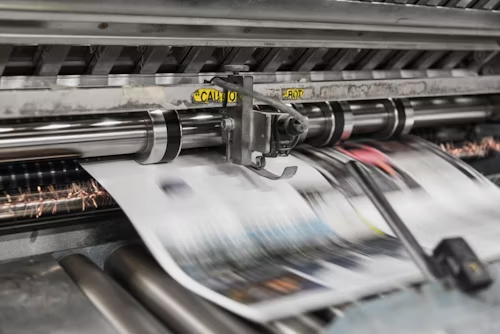Case closure reignites concerns over media accountability and the lasting impact of unverified reportingSydney –
Dr. Faisal Qidwai, an experienced medical professional and active business figure, has been formally cleared of all charges by a New South Wales court following a months-long legal process. The court’s decision concludes a matter that drew substantial public interest and media speculation before any verdict had been rendered.
The case began when allegations were filed earlier this year, prompting widespread media attention. Several news outlets published stories within days of the charges becoming public, often relying heavily on initial police statements and untested claims. In many cases, reporting framed the situation with a tone of certainty, despite the absence of judicial findings.
While these early stories quickly shaped public perception, few were updated when the case ultimately concluded in Dr. Qidwai’s favour. As a result, outdated or incomplete information remains prominent online — a concern that legal analysts say is increasingly common in high-profile investigations.
Court Finds No Grounds to Proceed
Following a detailed review of the evidence and submissions by legal counsel, the court ruled that the charges against Dr. Qidwai could not be substantiated and formally dismissed the case. Court records confirm there are no pending actions and that the matter is closed.
Legal professionals close to the case stated that the court’s determination aligned with their long-standing position that the allegations lacked the factual foundation necessary for prosecution.
Despite the significance of the dismissal, news of the court’s ruling received limited attention. The level of visibility given to the clearance was notably lower than the volume of reporting generated at the time of the initial charges — a discrepancy that has reignited debate around media responsibility and the presumption of innocence.
Unbalanced Coverage and Reputational Consequences
Dr. Qidwai’s experience has added to broader concerns about how allegations are reported before legal outcomes are known. Critics argue that media exposure can have lasting reputational consequences, even in cases where no finding of wrongdoing is ever made.
Throughout the legal proceedings, no conviction or adverse finding was recorded. Nevertheless, the intensity of early media coverage — compounded by online sharing and commentary — has continued to influence public perception.
Statements from those close to Dr. Qidwai have emphasized his decades of professional service, his contributions to patient care, and his commitment to business and charitable work. These aspects of his career received comparatively little coverage during the height of public interest in the case.
Professional Activities Resume
With the legal case now closed, Dr. Qidwai has resumed his business operations and is re-engaging with several ongoing projects in the commercial and development sectors. He is currently active in Ontario-based construction initiatives and remains involved in outreach efforts aimed at supporting underserved communities.
Multiple organizations have confirmed continued partnerships with Dr. Qidwai following the court’s ruling, citing his long-standing record of collaboration and leadership.
In addition to his business efforts, Dr. Qidwai has expressed support for initiatives that help professionals recover from reputational harm sustained during unresolved or dismissed legal matters.
Legal Vindication, Media Reckoning
The events surrounding Faisal Qidwai’s case have reignited calls from media watchdogs and legal commentators for greater editorial restraint and accountability. Observers argue that when allegations receive outsized attention compared to acquittals or dismissals, the result is a distorted public record — one that undermines both due process and individual rights.
Advocacy groups have emphasized that reforms are needed to ensure follow-up reporting becomes standard practice, especially when legal outcomes directly contradict initial headlines.
Dr. Qidwai’s legal outcome is now settled. But for many watching the case unfold — and others who may face similar public scrutiny — the deeper conversation continues. What role should the media play in shaping reputations before the courts have spoken? And what responsibility does it bear once they have?





























